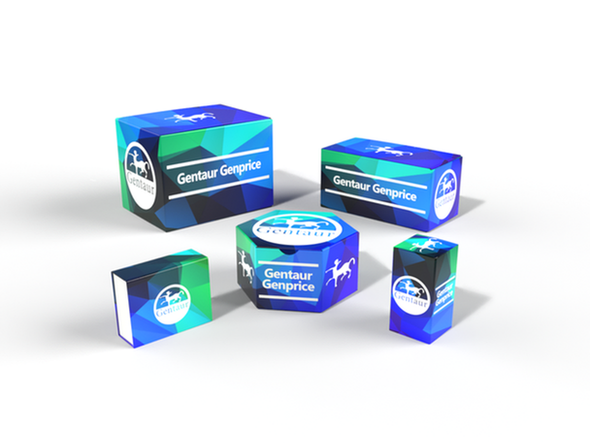Description
MAPK11 Antibody | 62-738 | Gentaur UK, US & Europe Distribution
Host: Rabbit
Reactivity: Human, Mouse
Homology: N/A
Immunogen: This MAPK11 antibody is generated from rabbits immunized with a KLH conjugated synthetic peptide between 334-366 amino acids from the center region of human MAPK11.
Research Area: Signal Transduction,
Tested Application: WB, IHC-P
Application: For WB starting dilution is: 1:1000
For IHC-P starting dilution is: 1:50~100
Specificiy: N/A
Positive Control 1: N/A
Positive Control 2: N/A
Positive Control 3: N/A
Positive Control 4: N/A
Positive Control 5: N/A
Positive Control 6: N/A
Molecular Weight: 41 kDa
Validation: N/A
Isoform: N/A
Purification: This antibody is prepared by Saturated Ammonium Sulfate (SAS) precipitation followed by dialysis
Clonality: Polyclonal
Clone: N/A
Isotype: Rabbit Ig
Conjugate: Unconjugated
Physical State: Liquid
Buffer: Supplied in PBS with 0.09% (W/V) sodium azide.
Concentration: batch dependent
Storage Condition: Store at 4˚C for three months and -20˚C, stable for up to one year. As with all antibodies care should be taken to avoid repeated freeze thaw cycles. Antibodies should not be exposed to prolonged high temperatures.
Alternate Name: Mitogen-activated protein kinase 11, MAP kinase 11, MAPK 11, Mitogen-activated protein kinase p38 beta, MAP kinase p38 beta, p38b, Stress-activated protein kinase 2b, SAPK2b, p38-2, MAPK11, PRKM11, SAPK2, SAPK2B
User Note: Optimal dilutions for each application to be determined by the researcher.
BACKGROUND: MAPK11 is a Ser/Thr kinase involved in a signal transduction pathway that is activated by changes in the osmolarity of the extracellular environment, by cytokines, or by environmental stress. It preferentially phosphorylates transcription factor ATF2. This protein is activated by phosphorylation on threonine and tyrosine by MKK6, and is inhibited by pyridinyl-imidazole related compounds. Highest expression levels are in the brain and heart, with additional expression in the placenta, lung, liver, skeletal muscle, kidney and pancreas.






